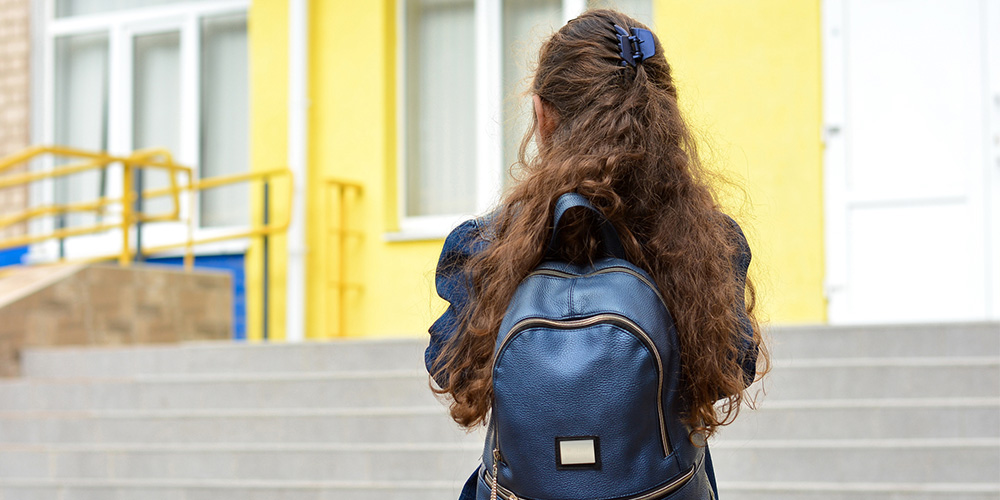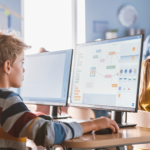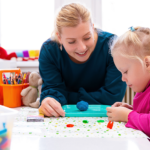As many schools begin to reopen under (somewhat) normal circumstances, educators are asking a lot of tough questions. In a given class of 20+ kids, how many of them are performing at grade level and how many experienced some learning loss during the shutdowns? What’s the best way to make sure no one falls behind?
Equally important as these academic questions are the social–emotional concerns that both teachers and students will bring to the classroom. After such a turbulent year and a half, a return to “normal” will not automatically reverse the stress and emotional damage many experienced during the shutdowns. Schools will need to be very intentional about students’ and teachers’ social–emotional well-being, starting with having a great reopening plan.
Reopening Schools: The Psychosocial Impact
According to one survey, educators can expect one in three students to show signs of mental or emotional harm as they reenter the classroom. It will be a huge undertaking for schools to help everyone in the building transition—and much more so when up to a third of the student body is struggling with social–emotional issues.
In a roundup of the latest research, the Kaiser Family Foundation advises educators to be on the lookout for issues like:
- Clinginess: Especially young children may respond to the loneliness of being cooped up at home with a tendency to be overly dependent on their parents, teacher, or peers.
- Distraction: Whether it’s being excited to be around peers again or not remembering how to be attentive in class, students might struggle to stay focused during lessons.
- Irritability: Some students may not be thrilled about returning to the structure and expectations of classroom learning, and may respond with resistance and withdrawal.
- Fear: After all the sickness and destabilization during the pandemic, it’s understandable that some kids will have fears about becoming ill or life-changing again.
- Substance use: Older students may be at higher risk of abusing alcohol or drugs to cope with the stress, loneliness, and upheaval of the last 18 months and returning to school.
- Stress from home life: During the pandemic, many families struggled with lost income, childcare challenges, or physical or mental health issues. Studies have shown that such stress can have long-term harmful effects on children’s emotional and mental health.
- Behavior issues: It’s no surprise that all of the above factors are likely to manifest in behavioral issues in class. It’s important for teachers to keep this in mind as they navigate potential disciplinary actions.
The Benefits of SEL-Focused Reopenings
The beginning of the 2021–2022 school year brings the need for SEL into sharp relief. However, the benefits of focusing on SEL, especially at the beginning of the school year, extend beyond the present crisis. After decades of research following the impact of social–emotional education, the Collaborative for Academic, Social, and Emotional Learning has found the following benefits of emphasizing SEL:
- Improved academics and behavior: One study found that students who participated in an SEL program outperformed their peers academically by 11 percentile points. Moreover, they showed “improved classroom behavior, an increased ability to manage stress and depression, and better attitudes about themselves, others, and school.”
- Sustainable progress: SEL programs don’t just have immediate benefits (though they do). One meta-analysis of 100,000 students showed social–emotional education continues to benefit students academically, behaviorally, and emotionally for up to 18 years. It even correlates with decreased rates of drug use.
- Reduced poverty: It’s amazing to think that teaching SEL skills can actually have long-term economic benefits for students. It’s true! Quality SEL programs are associated with reduced rates of poverty and improved economic mobility for learners.
- Improved life outcomes: Students who focus on SEL skills as early as kindergarten are more likely to be independent and stay out of trouble as young adults. They’re less likely to depend on public housing or public assistance and less likely to have run-ins with the police or juvenile detention.
Creating an SEL-Centric Transition Plan
So what does an SEL-focused reopening plan look like on a practical level? Panorama Education gives the following strategies for creating an effective back-to-school playbook that offers SEL support:
- Provide support for teachers as well. As the old adage goes, you can’t pour from an empty cup. Last school year was harrowing for teachers as their workload doubled and they had to rework their entire year to fit an online or hybrid format. Needless to say, many are coming into this year exhausted and battle-worn. That’s why it’s essential to equip teachers with social–emotional support as well. Examples might include:
- Time for self-reflection about how the last year went and how they want to move forward
- Training in mindfulness, managing anxiety, and SEL practices to pass on to students
- Surveys to learn what teachers need most
- Support groups where teachers can learn and grow together
- Do preemptive wellness checks. Don’t wait until there’s a crisis to intervene with students. Students need to feel safe and connected to the adults in their lives before they’ll reach out for support, so it’s important to initiate contact and establish regular conversations about their thoughts and emotions. Examples of how you might do this include:
- Build in time for quick “temperature checks” where you ask students how they’re feeling and why.
- Give students the vocabulary they need to communicate their feelings, such as through a feelings wheel or a rose, bud, thorn worksheet.
- Don’t forget SEL competencies can (and should) be measured. It’s helpful to regularly assess students’ coping skills, relational health, and other important SEL disciplines.
- Offer individual support. It can often feel like a monumental task for school leaders and teachers to find time to check in with each individual student. However, a little bit of time can go a long way, especially at the beginning of the school year. Consider practices such as:
- Greeting students at the front door of the school and the classroom
- Building in time for conversation, such as through brief check-ins, morning meetings, and community-building games and activities
- Focusing on restoration and healing rather than disciplinary actions that remove students from relationships with the teacher or their classmates
- Provide trauma-responsive SEL. Being trauma-responsive means teaching students SEL skills that will help them “deal with toxic stress and overcome difficult life circumstances.” Chances are, some of your students experienced some level of trauma during the pandemic. Or even if they didn’t, it’s always valuable to give them tools for resiliency in life and academics. The backbones of a trauma-responsive school include:
- Predictable routines
- Relationship building among students and teachers
- Student agency
- Labeling emotions
- Self-regulation skills
- Opportunities for self-reflection
- Partner with parents. Schools can’t solve every problem (nor should they pressure themselves to). Instead, get families involved by extending what you’re doing in class. For example, parents can help their children practice articulating their emotions and pointing out examples of SEL skills in their kids’ favorite shows, books, and video games. Also make sure to get parents’ input on your reopening plan, and provide resources for practicing mindfulness and coping skills at home.






